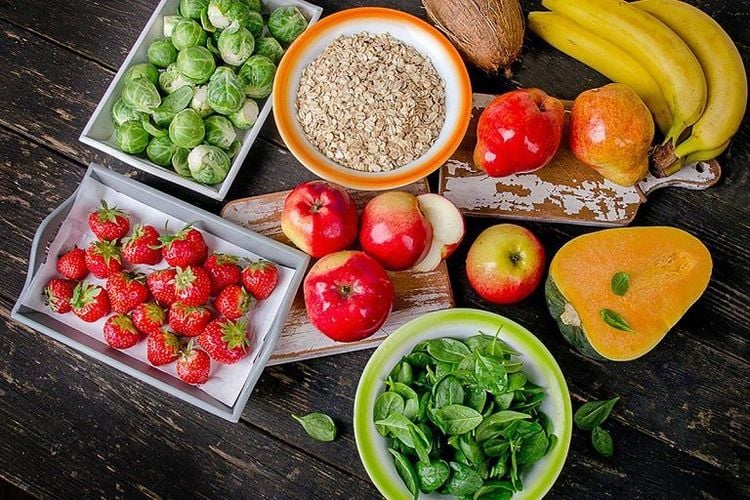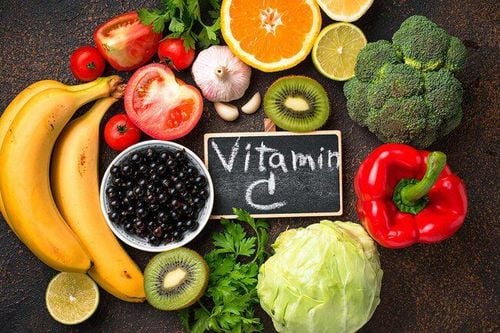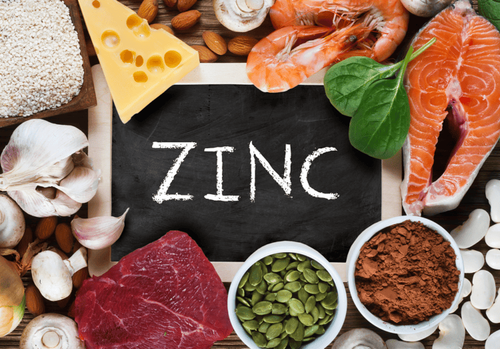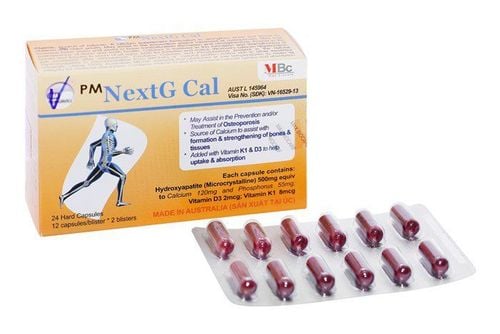This is an automatically translated article.
The article was professionally consulted with resident Doctor Ho Thi Hong Tho - Neonatologist - Department of Pediatrics - Neonatology - Vinmec Phu Quoc International General Hospital.The article was professionally consulted with resident Doctor Ho Thi Hong Tho - Neonatologist - Department of Pediatrics - Neonatology - Vinmec Phu Quoc International General Hospital.
A balanced and nutrient-rich diet for children is certainly essential. But knowing exactly which nutrients and how much children need for each is not always easy, and children may not always get all the vitamins and minerals they need.
To make sure your child is getting all the nutrients he needs, be sure to offer a variety of foods. Start by taking a closer look at the foods your child eats on a regular basis. In this article, we will provide useful information about 10 nutrients that every child should have in their diet.
1. Benefits of healthy eating habits for children
The formation of a healthy eating habit is very beneficial for all children:Helps children to be provided with enough energy for the process of development. Intellectual improvement. Improve mood. Helps children maintain a healthy weight gain. Helps children prevent mental health conditions including depression, anxiety, and attention deficit hyperactivity disorder. Healthy food for children with an emphasis on nutrition is one of the simplest and most important ways to prevent the onset of various diseases. A suitable diet can prevent the risk of some diseases in children such as obesity, cardiovascular disease, hypertension, type 2 diabetes,...
Children's eating habits are formed from in childhood persists and follows the child into adulthood. That's why it's so important to form healthy eating habits in your kids early on. They help children stick to these diets and create a healthy lifestyle and eating habits. Although all parents have probably heard that children should eat a balanced diet from an early age, not everyone knows exactly what and what nutrients a balanced diet entails. must be included in the child's diet.

2. 10 nutrients every child needs
2.1. Calcium Calcium is one of the most important nutrients for every child. They help children build strong bones and teeth, promote healthy nerve and muscle function, aid in blood clotting, and help the body convert food into energy. Some foods high in calcium include:Milk. Cheese. Yogurt . Cream. Yolk. Broccoli . Spinach . Tofu. 2.2. Essential fatty acids (EFAs) Essential fatty acids are involved in supporting the cell building process, regulating the nervous system, enhancing cardiovascular system function, improving immunity and making it easier for the body to absorb absorb nutrients. In addition, essential fatty acids are necessary for brain and eye function. Foods high in essential fatty acids for children include:
Whole milk products. Cooking oils of all kinds. Meat Fish, especially fatty fish. 2.3. Iron Iron is an important nutrient in the formation of hemoglobin, an important material for transporting oxygen in the blood, as well as myoglobin, a pigment that helps store oxygen in the muscles. Iron deficiency can cause anemia, leading to fatigue, weakness, and irritability. Foods that are high in iron include:
Red meat. Animal liver. Poultry meat. Shellfish. Grains . Bean. 2.4. Magnesium Magnesium works with calcium to keep bones strong and heart rhythm steady, supports the immune system, and helps maintain nerve and muscle function. Food sources containing the most magnesium for children include:
Whole grains. Dry roasted cashews. Legumes: Peanuts, soybeans,... Almond butter. Spinach. Yogurt. Banana. Flounder.

Vegetables such as: Spinach, potatoes, tomatoes, bananas, cantaloupe, almonds, watermelon, oranges,... Fruit juices. Sunflower seed. Honey . 2.6. Vitamin A Vitamin A in particular and other vitamins in general is recommended by experts to be included in a child's healthy diet from an early age. Vitamin A plays an important role in children's vision and bone development. Vitamin A helps protect the body against infections and promotes the growth of cells and tissues in the body including hair, nails, and skin. The most suitable source of vitamin A for children can come from:
Carrots Sweet potatoes Squash Squash Apricots Spinach Broccoli, cabbage Fish oil Egg yolk 2.7. Vitamin C Vitamin C helps form and regenerate red blood cells, bones and other tissues and organs in the body. Vitamin C also protects children's gums, increases elasticity as well as prevents atherosclerosis, reduces bruising quickly, supports healing, strengthens the immune system and prevents the risk of infection. It also aids the body in its ability to absorb iron from other iron-rich food sources. Foods high in vitamin C include:
Citrus fruits such as oranges, tangerines, grapefruit. Strawberry. Tomato. Potato. Melon. Cabbage. Broccoli. Cauliflower. Spinach. Papaya. Mango.

Fish such as salmon, canned tuna, mackerel,... Milk, cheese and yogurt,... Orange juice Cereal Egg Yolk Margarine 2.9. Vitamin E Vitamin E has many uses not only for children but also for adults. Vitamin E helps neutralize free radicals that can cause damage and shorten the lifespan of cells. More importantly, vitamin E also helps strengthen children's immunity, aids in correcting errors in DNA genetic material, and limits harmful genetic mutations. In addition, vitamin E is also involved in supporting the body's metabolism. Vitamin E can be found in a wide variety of foods, including fruits, vegetables, and nuts. Here are some of the best food sources for vitamin E for babies:
Nuts or seeds and their products such as: Almonds, wheat, dry roasted sunflower seeds, almond butter, nut butter sunflower, fine peanut butter, dry roasted peanuts, sunflower oil, corn oil, soybean oil.... Some vegetables like spinach, collard greens, water spinach,... 2.10. Zinc According to statistics, more than 70 enzymes that support digestion and metabolism in children depend on zinc to perform their roles. Children who do not receive the recommended amount of zinc are at very high risk of malnutrition and stunting. Fortunately, today zinc deficiency in infants and children has improved significantly. Zinc can be found in a wide variety of foods. Here are some of the best sources of zinc:
Cooked pork or beef. Ketchup. Grilled hamburger. Instant cereal, oatmeal. Yogurt. Some nuts like almonds, cashews, beans, lentils, peas, lima beans,... Milk and dairy products like yogurt, cheese,...

Children can eat more or less than the recommended amount of food depending on their age and appetite so parents need to think carefully to be able to provide the right amount of nutrients Best for children.
Most of today's parents are so busy with work that it is difficult to cook their own food every day. Therefore, the adjustment of nutrient content in food is not guaranteed, causing children to receive more than the recommended amount of these substances, so the rate of obesity in children is increasing. However, in reality, the nutritional content from the foods children are eating every day is too low. Many foods are processed or extremely unhealthy. They are rich in energy but lack nutrients. That's why parents should instill healthy eating habits in their children from an early age.
In addition to the above nutrients, parents should also supplement their children with foods containing Lysine. Lysine is an essential amino acid necessary for development that the body cannot synthesize on its own, helps support the digestive system, enhances absorption,... At the same time, it also supports the immune system, strengthen resistance, reduce the risk of upper respiratory tract infections, bronchitis, flu,... in children.
Above is a list of some nutrients that are essential for your baby's growth and development. Do not forget to regularly visit the website: Vinmec.com to update useful child care information.
Please dial HOTLINE for more information or register for an appointment HERE. Download MyVinmec app to make appointments faster and to manage your bookings easily.
References: babycenter.com, parents.com, fru2go.com, activebeat.com













